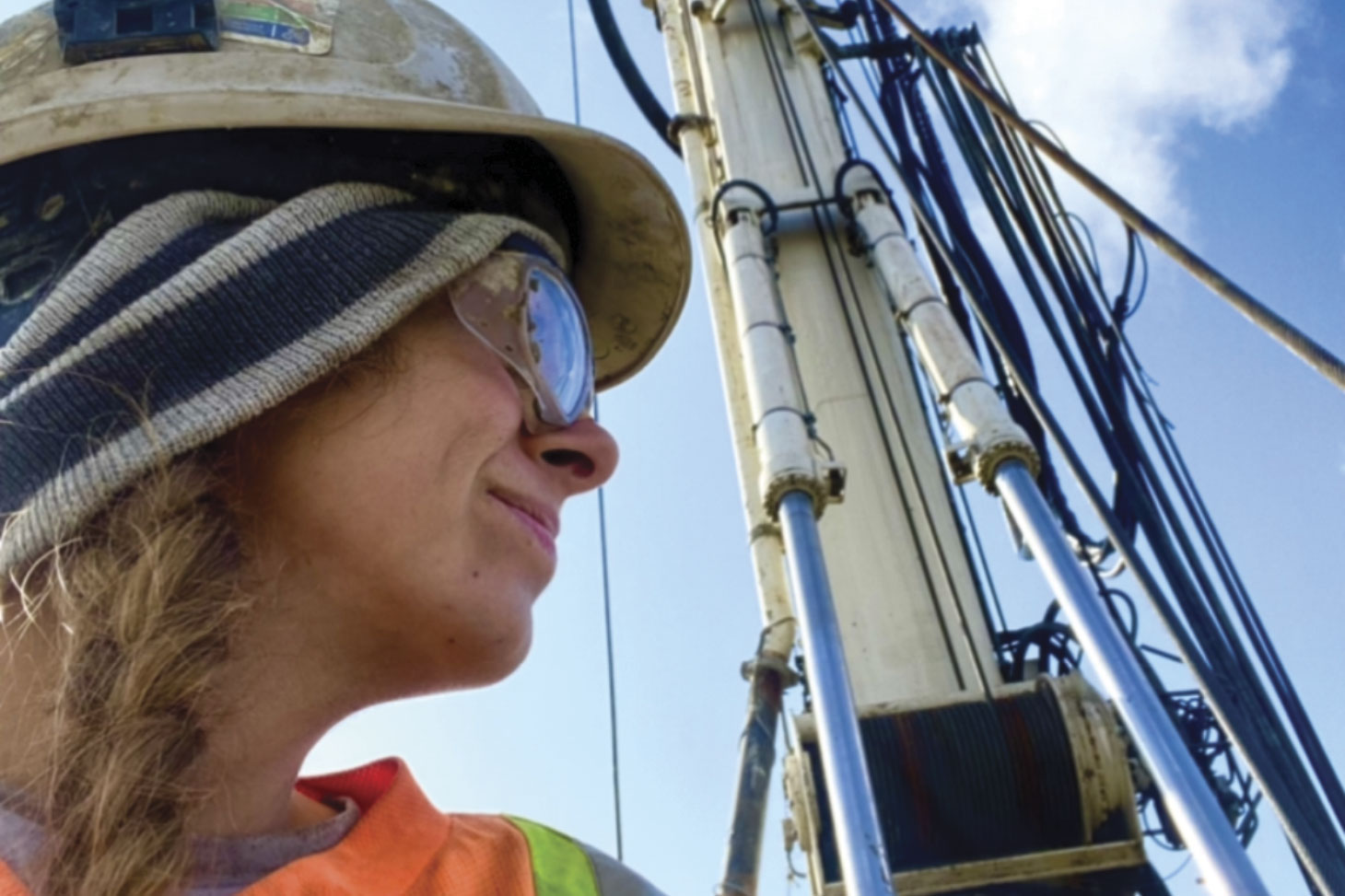
For Jessica Forbes-Alkins, her passion for deep foundations is her secret weapon. It’s the X factor that sustained her for eight years as she tried to break into the industry, slowly but surely transforming herself from coffee shop attendant to trainee rig operator.
Her interest was piqued as she rode the Vancouver city bus to that coffee shop job in her early 20s, passing by workers installing the foundations for the Evergreen Extension of the city’s SkyTrain rapid transit system. Today, she is a trainee driller at Bauer Foundations Canada.
“I was looking for somewhere to invest myself,” she recalled. “I had always had a passion for geology, machinery and the outdoors, so it really clicked with me. I grew up off-roading and wilderness camping with my dad, so I think it spoke to that part of me. I’d never considered construction as a career option, but I felt too inspired to not try.”
For a young woman who was afraid to drive a car, it was a giant leap towards a new future. Here, Piling Canada connects with Forbes-Alkins to find out how perseverance and a dream launched her deep foundations career.
How long have you worked in the industry and how did you get here?
Jessica Forbes-Alkins: I started working in deep foundations just over three years ago as a front-end person. I got here by taking a lot of very small steps. In fact, I knew less than nothing when I first started out and was not confident. My first construction job was as a flagperson; then eventually, I had enough courage and knowledge to seek a labour position. I knew I wanted to try operating machinery, so I paid for a course to learn how. Eventually, I did operate some machinery, but in other fields. By the time I joined this industry, I had a lot more construction and equipment knowledge than I did at the beginning, and I felt a lot more confident.
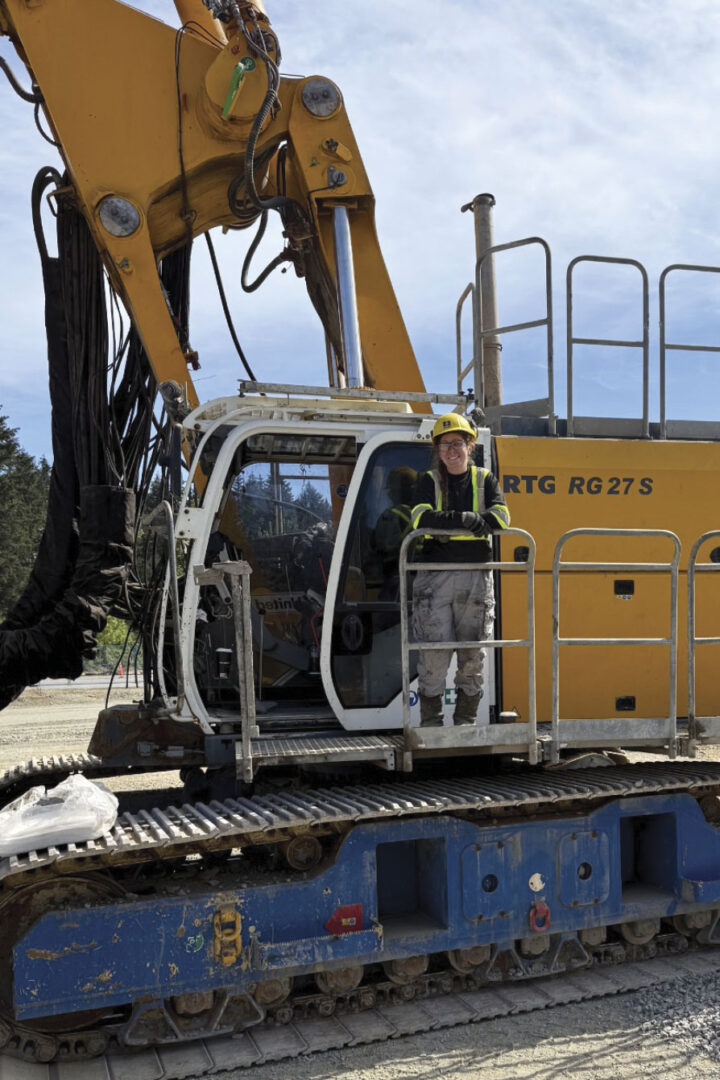
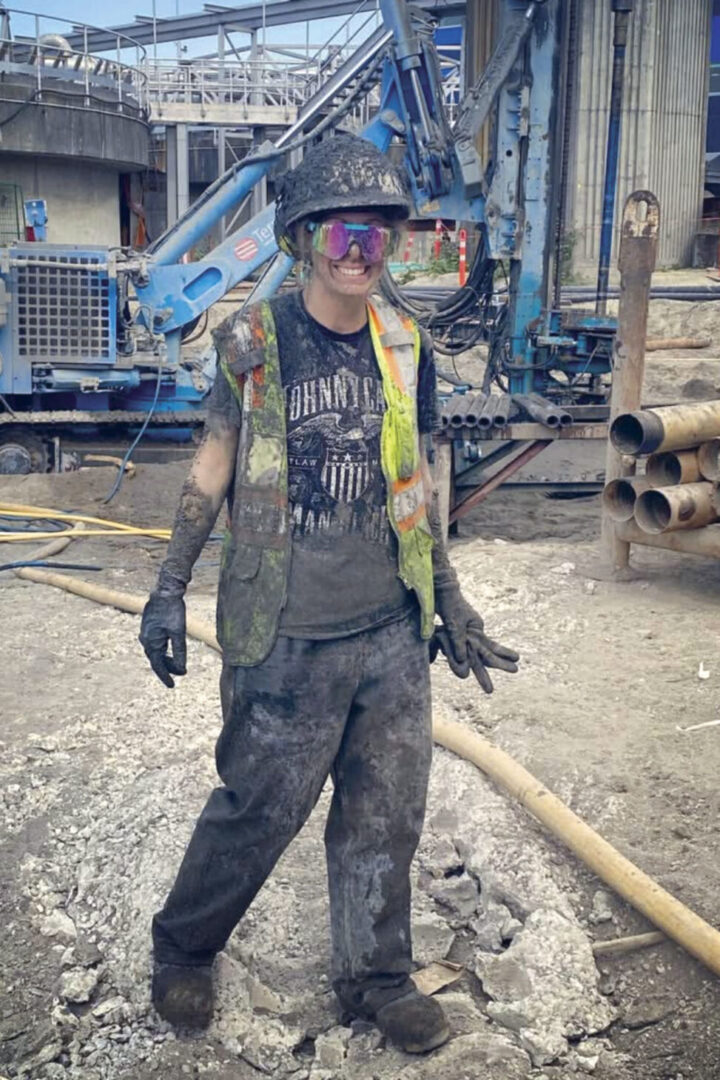
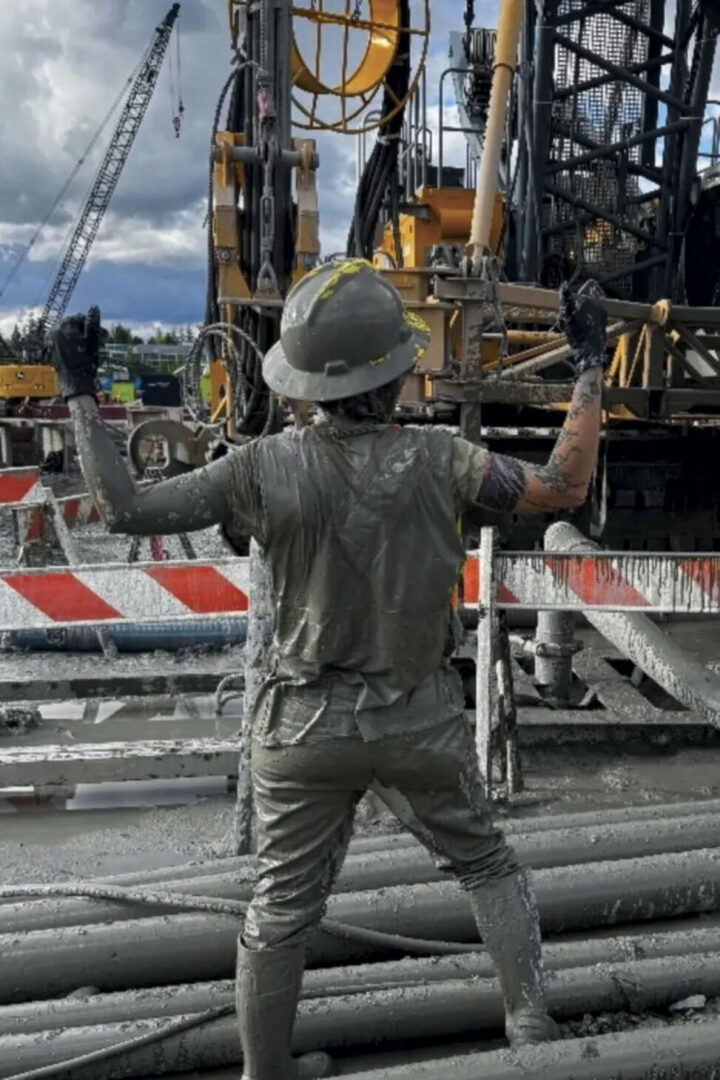
What was the biggest hurdle you faced to break into the industry?
JFA: In retrospect, I think it was my own fear that held me back the most. For a long time, I really didn’t think it was ever going to happen. But I’m here now, and it’s also true that I wasn’t ready beforehand. In the beginning, I was afraid to even drive myself to work, let alone operate heavy equipment! I had to become a lot braver, because when I was younger, the truth is that I was pretty terrified of what I was trying to accomplish.
What do you enjoy about heavy equipment operation?
JFA: I enjoy the concentration it takes to operate these machines. You need to pay attention to the way the controls feel, the way the machine feels, as well as the data on the screen and what’s going on outside the cab. Some of the machines are seriously complex, and I don’t think I’ll ever get tired of learning about them. The responsibility of maintaining them properly is important; helping diagnose problems and fixing them when they come up is rewarding. Of course, safe operation is extremely important to me. I want the people on the ground to know, without a doubt, that I’m conscious of their safety at all times.
“If your heart is in it, like mine is, don’t give up! Keep talking to people and asking questions, and get ready to push yourself out of your comfort zone a lot.”
Jessica Forbes-Alkins
What are your career goals?
JFA: I want to learn to be a really good operator. I think I have it in me. I have the passion and interest and drive to do it, and the utmost respect for the machinery. I want to be one of those operators who makes it all look effortless someday – rigging up and down, diagnosing problems and installing the foundations. Right now, I still have a lot to learn in terms of operating, but I’m looking forward to the days when I’m essentially as knowledgeable and experienced as the people who are training me right now.
How do you stay confident and motivated?
JFA: Having as much passion as I do definitely helps, because just being here is kind of like a silver lining. Building good relationships with my co-workers also helps, because it makes things a lot easier when you can laugh about the crappy days together. Sometimes, I get really frustrated and demoralized, and those are the times when I love that our job is quite physical. It can be fun to yell a bit when you’re swinging the hammer, and it’s a good release. And when things get really tough, it’s always an amazing feeling to know that you made it through anyway.
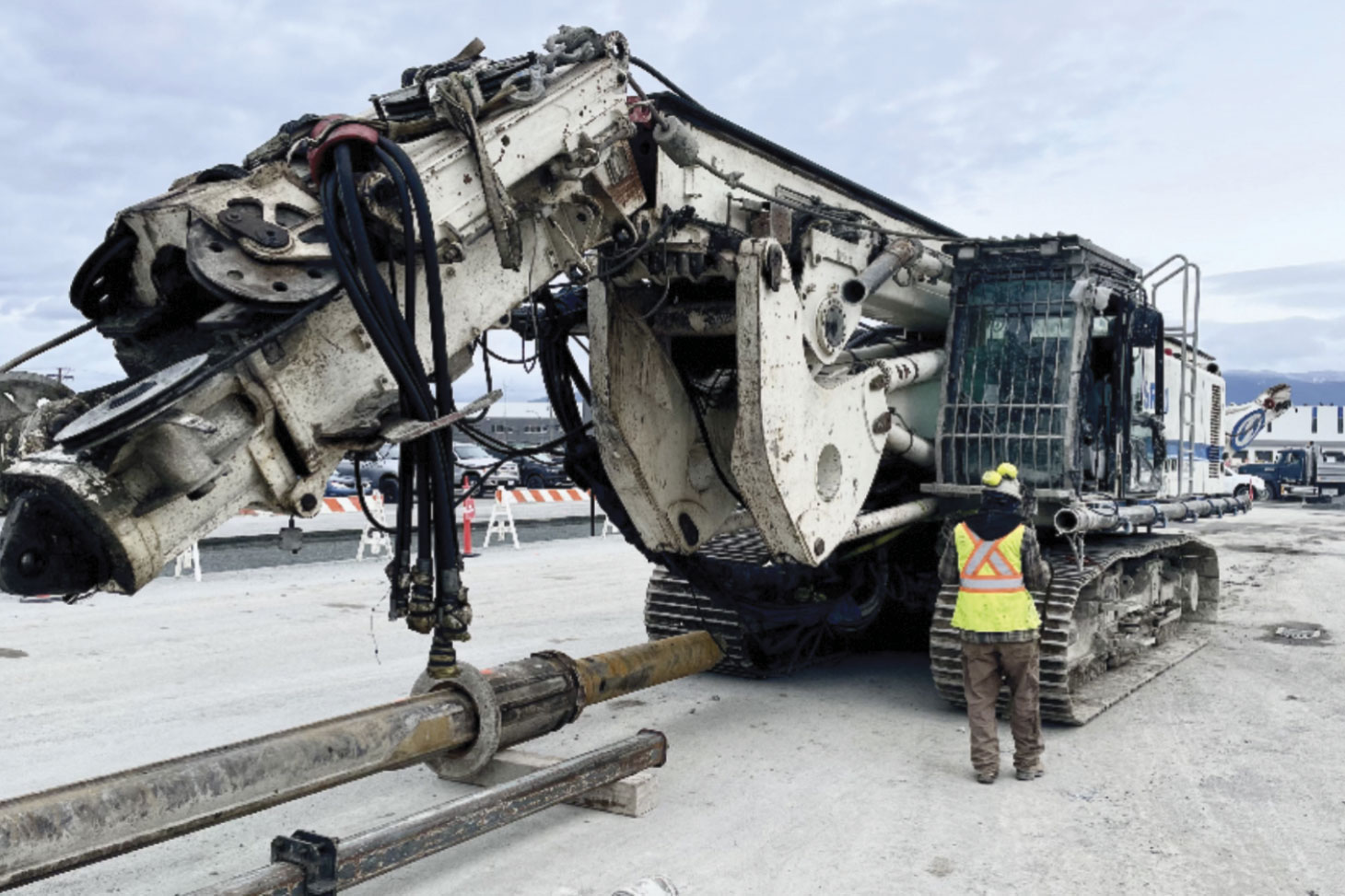
Did you face any challenges as a woman in a traditionally male-dominated industry?
JFA: I have had struggles, but I don’t know if any of them were specifically because I’m a woman. Everyone has to start somewhere, and it’s never great to start at the bottom. Nobody likes training; it feels like you’re the dumbest person in the room at all times. But you have what I call a “screw-up phase,” and then you slowly get better. People can be really hard on you when you’re learning, but I think a part of that is because they know that method works. It’s motivating.
Is there a project that stands out as a turning point in your career?
JFA: I had a really cool experience where I was a front-end person paired with an operator I did not get along with at all. We really disliked each other, and we weren’t working well together. But I kept trying to work hard and do a good job, respect him and stay positive, and one day he said to me that I was actually the best front-end person he’d ever had. We started laughing and joking around together, and by the end of the job we were extremely good friends. I think I’ll remember that always. It was a unique experience. It showed me the power of having the right attitude.
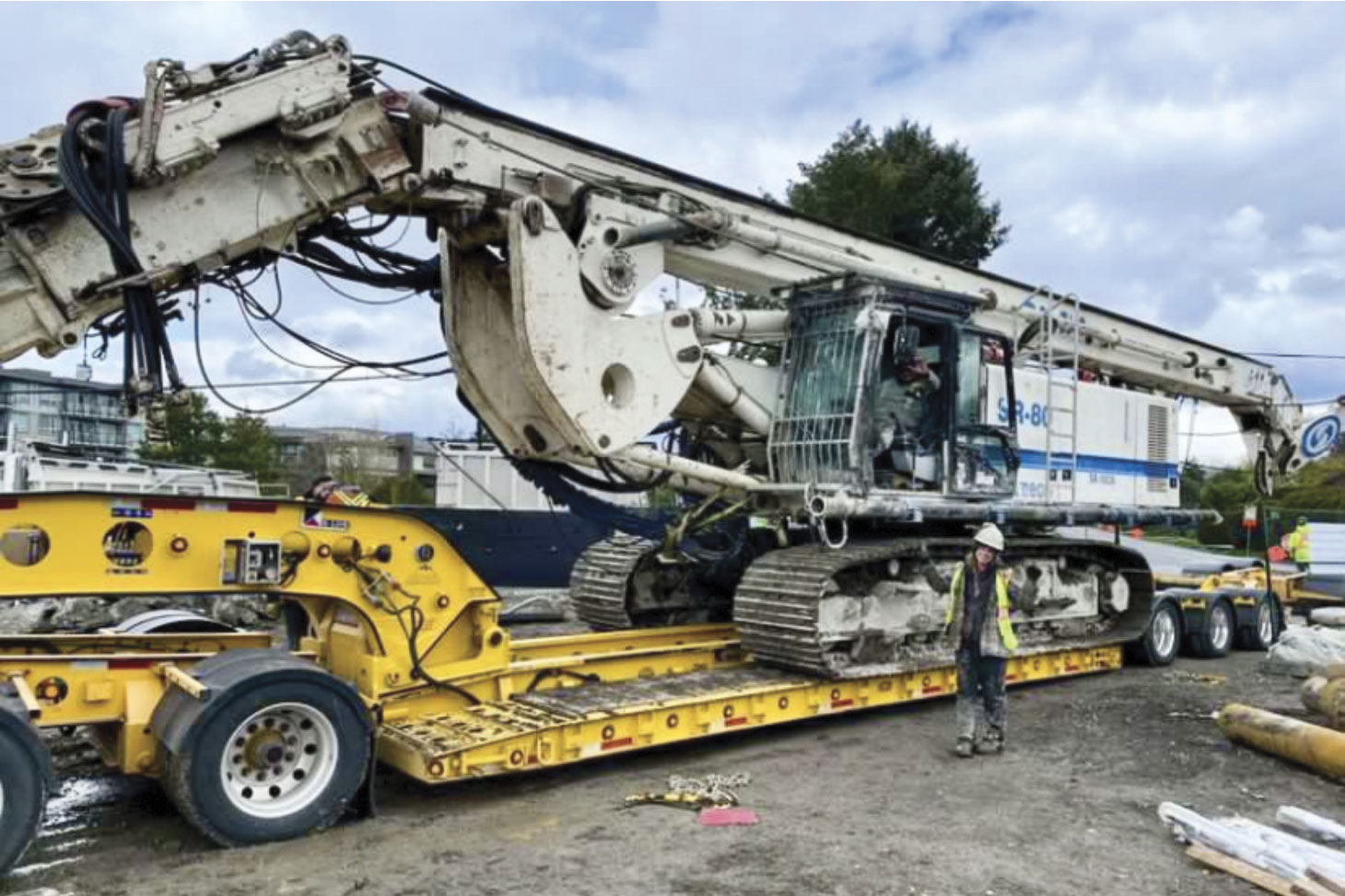
What advice would you give to someone trying to enter the field?
JFA: I’d say that if your heart is in it, like mine is, don’t give up! Keep talking to people and asking questions, and get ready to push yourself out of your comfort zone a lot. Not every day will be easy and that’s okay. Be willing to work hard and find the joy in that. Become one of your team, show your co-workers you genuinely respect them and show them you want to learn from them. Having allies is definitely important. The great thing about this industry is no two jobs are the same. You are not going to be your best at first and that’s normal. What makes a person get better is when they keep coming back – so, keep coming back.
What message would you share with companies looking to attract and retain more women in this industry?
JFA: Let’s be honest; the deep foundation industry can be a bit daunting. So, if a woman shows a genuine interest and is brave enough to express that, she probably thinks it’s awesome and has some kind of passion that she feels makes it worth it to her. Even if she doesn’t have the skill level you desire, passion is what keeps someone there working on their skills even after everyone else goes home.
Are you a Piling Canada reader and what value has the magazine had for you?
JFA: Piling Canada was how I got my first job in drilling! A few years ago, an article mentioned the Deep Foundations Institute’s Women in Deep Foundations (WiDF) committee. At that time, I had almost given up hope of ever breaking into this industry, so I decided to write to them. Lucky Nagarajan (past chair of the WiDF committee) connected me with ADSC industry leader Kevin Sharp, who connected me with my first job! So, I’d say there is a lot of value in the magazine.